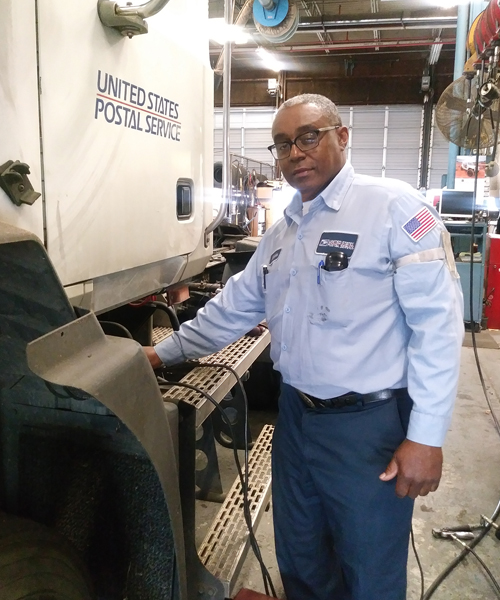Melvin McCoy recently followed in his father’s footsteps to observe a key moment in the struggle for civil and workers’ rights.
McCoy, lead technician at the Memphis, TN, Vehicle Maintenance Facility, marched in a 50th anniversary commemoration of the 1968 Sanitation Workers’ Strike and March.
While the strike is remembered as a turning point in the workers’ rights movement, it’s also recalled as the tragic backdrop to the assassination of Rev. Martin Luther King Jr.
McCoy’s dad Amos Landers, who died in 1985, participated in the original strike. McCoy was 9 at the time.
“I marched in honor of my dad,” said McCoy, who joined sanitation workers and others in the anniversary procession this month despite an ailing hip.
Memphis’s largely African-American sanitation workers had long labored in the segregated city under grueling, unsafe conditions for meager pay.
Workers typically lifted heavy tubs of trash and waste that often leaked on them, said McCoy, who’s also pastor of a local Baptist church.
“They didn’t have facilities at the sanitation department where workers could take a shower or wash up, so they had to go home just as they were. It was one of the things that upset my dad,” he said.
In February 1968, two sanitation workers were crushed in one of the city’s many dilapidated garbage trucks. “My dad knew one of the men. It was really the straw that broke the camel’s back. It brought everything into focus,” McCoy said.
In the wake of the tragedy, 1,300 workers walked off the job. Many strikers held now iconic picket signs that simply read “I am a man.”
King went to Memphis to join the striking workers in a massive rally. On April 3 that year, the civil rights leader delivered the rousing “I’ve Been to the Mountaintop” speech at the Mason Temple.
“I’ve seen the promised land. I may not get there with you. But I want you to know tonight, that we, as a people, will get to the promised land,” King told the cheering audience.
He was assassinated the next day.
While the events of 1968 are part of history, McCoy said they’ll never be forgotten.
“Sometimes, when you think about it, it brings joy and sadness. The sadness is that my dad and the other workers had to go through what they went through. But the joy is where I am today,” McCoy said.
“I have good job with the Postal Service. I’m not exposed to unsafe conditions. My dad told me that when you get a job, make sure you do it well. That still sticks with me. I feel blessed.”
